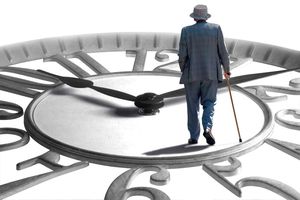Men are avoiding the doctor, can that be changed?
More and more men are avoiding the doctor. Or worse, not going at all.
What you need to know:
- Most men consider falling ill a sign of vulnerability.
- They fear being perceived as weak.
- A typical man would rather take painkillers for life for migraine than being informed that they have a tumor.
Studies show that, compared to women, men are less likely to visit a doctor for regular checkups, or when something is not right.
Healthcare workers report having to send family members to persuade their male relatives to visit the hospital.
What could be behind men’s poor health-seeking behavior?
Can anything be done to convince them that a visit to the doctor is good for them?
Why they choose to stay away
When asked why they avoid hospitals and doctors in general, most men say they believe they will get better on their own. This can be interpreted as either overblown confidence in themselves or downplaying the gravity of a possible illness. Experts theorise this as the superhero syndrome at play. Most men consider falling ill a sign of vulnerability and weakness. They believe people will perceive them as weak if they visit a doctor.
Some doctors believe men stay away from hospitals because of the fear of bad news. A typical man would rather take painkillers for life for migraine than being informed that they have a tumor.
Men also fear “shameful feedback” about sensitive issues such as fertility and erectile dysfunction. This makes many opt to solve the problem on their own by taking supplements or even blaming their partners for their woes.
Finally, it is also possible that men are afraid of some diagnostic and treatment procedures. For example, colonoscopy and tests for prostrate can be quite uncomfortable.
The cost of avoiding doctors
Many lifestyle diseases have ‘silent symptoms’ which can only be detected through regular checkups. Therefore, by avoiding doctors, men rob themselves of the chance of an early diagnosis.
Late diagnosis means an illness has advanced, sometimes irreversibly or the patient may have to undergo expensive and intensive treatments.
This mentality could also harm dependents who are in the care of men. A man who can’t book checkup appointments for himself is unlikely to make such arrangements for others.
These men may also expect their sons and other male relatives to toughen up and dissuade them from going to the hospital often.
Getting men to see the doctor
Here are some suggestions:
- Offer discounts for people who go for checkups with their partners
Many men have reported going to a doctor just to get their partners to stop nagging. With such an incentive, many women will persuade their partners to see a doctor.
- Sensitize men on need for checkups
Some researchers have suggested that women go for checkups more often because they understand their health better than men. Campaigns to sensitize men on the need for checkups could improve their perception of doctor visits.
- Male medical personnel for reluctant patients
Men who consider going to the doctor as emasculating are also unlikely to disclose all their medical information. However, they are usually open to older male doctors because they perceive them as qualified and experienced.
Final words
Although millennial men have shown more enthusiasm towards seeking medical attention, compared to men of older generations, there is still a gap that calls for efforts towards changing men’s mindsets about seeking healthcare.



